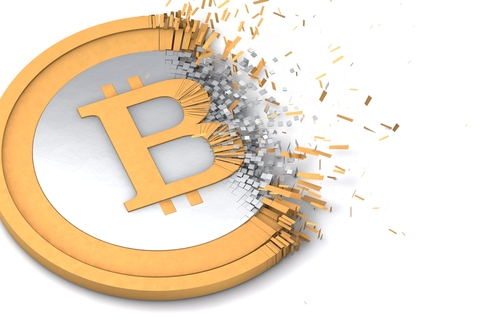Mt Gox, once the most popular bitcoin exchange in the world, has acknowledged it lost at least 750,000 BTC belonging to its customers, along with 100,000 of its own bitcoins. That much virtual currency is worth more than $500 million (£300m) on the open market today.
The statement from CEO Mark Karpeles posted on the Mt Gox website confirms the information leaked last week in a document called ‘Crisis Strategy Draft’, which suggested hackers had relieved the exchange of hundreds of millions of dollars worth of virtual currency.
The Tokyo-based exchange filed for bankruptcy protection on Friday. It has entered a ‘procedure of civil rehabilitation’ in Japan, and opened up a customer support phone line. Mt Gox hopes to continue operating the business under the supervision of the court in order to maximise repayments to creditors.
Meanwhile in the US, a customer who had $25,000 in BTC on Mt Gox has filed a class-action lawsuit accusing the company of negligence and fraud.
But do you have my money?
In the middle of February, Mt Gox temporarily stopped all withdrawals, while it was investigating “unusual activity” in its systems. A few days later it resumed exchanging virtual currencies into cash, but refused to make transfers to third party bitcoin wallets, blaming a ‘transaction malleability’ bug in the peer-to-peer protocol for making it possible to defraud the exchange.
 In response, prominent developer and Bitcoin Foundation chief scientist Gavin Andresen said that the network had dealt with transaction malleability a while ago, and the problems at Mt Gox were caused by the platform’s own custom software.
In response, prominent developer and Bitcoin Foundation chief scientist Gavin Andresen said that the network had dealt with transaction malleability a while ago, and the problems at Mt Gox were caused by the platform’s own custom software.
Two weeks after the exchange suspended withdrawals, the website suddenly went offline, amidst rumours of insolvency.
If Karpeles is to be believed, transaction malleability had been used to bleed Mt Gox dry. “As a result of our internal investigation, we found that a large amount of bitcoins had disappeared. Although the complete extent is not yet known, we found that approximately 750,000 bitcoins deposited by users and approximately 100,000 bitcoins belonging to us had disappeared,” said the CEO in a post on the website.
“We believe that there is a high probability that these bitcoins were stolen as a result of an abuse of this bug and we have asked an expert to look at the possibility of a criminal complaint and undertake proper procedures.”
Later in the post, Karpeles notes that Mt Gox “cannot confirm the exact amount of missing deposit funds and the total amount of bitcoins which disappeared”, implying that the overall losses might be even higher.
The exchange reported having 127,000 creditors, liabilities of 6.5 billion yen (£38 million) and assets of 3.84 billion yen (£22.7 million).
Karpeles has promised to cooperate with any investigations, in Japan or overseas. The company has established a call centre in Tokyo to respond to customer inquiries, with lines opening earlier today. However, it has already been blasted for long hold times and the inability of some staff to speak English.
Mt Gox was established in 2010 as Magic: The Gathering Online Exchange – a platform for trading collectible game cards, but its focus soon shifted to a more lucrative business – transactions in digital currency. Despite an important role in pioneering bitcoin transactions, the exchange had been frequently criticised for its crude approach to software development and lax accounting practices. The way Karpeles misinformed the bitcoin community didn’t win him any friends either.
What do you know about Bitcoin? Take our quiz!




